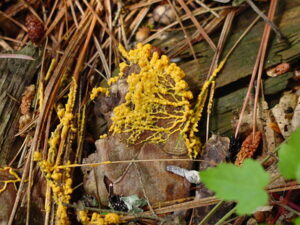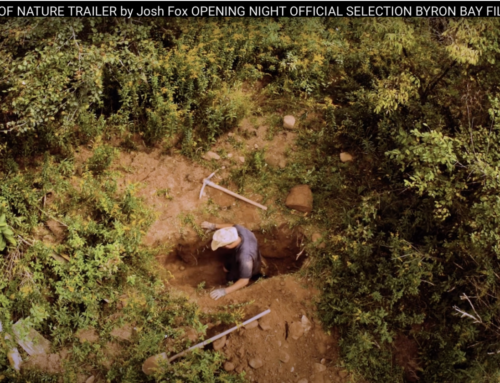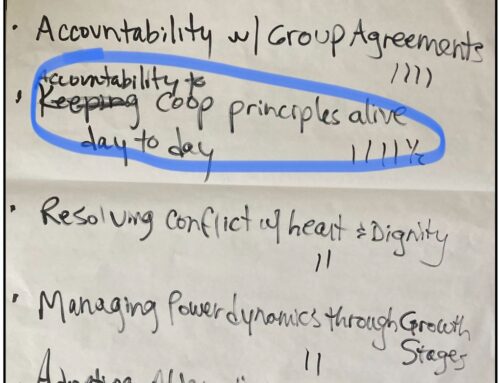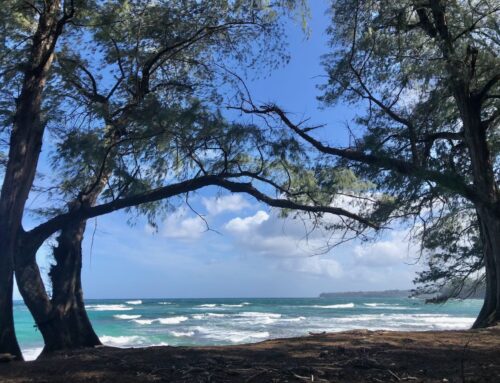When I put the Year of Truth monthly topic list together in January, I could have NEVER predicted where we’d be right now. It’s hard to even believe that we are where we are, all still staying at home, schools closed, wearing masks everywhere when we do actually go out into society, connecting online gracefully though somewhat reluctantly as though we’d somehow [been] prepared for this…
My goal for this topic was to riff off Spring weather and the different blooming relationships — from human attractions through the act of sniffing out pheromones to insect and flower attractions and the lovely fragrances of the season. It has been a rather cold and wet April in Massachusetts with a few days of sunshine that I have basked in for two glorious 15 minute naps.
Inside-Out Biology has a bit of a different frame in my mind now, with COVID-19, but there are still good resources to share and references to make; perhaps the main difference is that we may be more aware of our inner landscapes now, and able to resonate more with words about our biological connections.
When I think of inside-out I think about the way our bodies inform us – the subtle hints when something is starting to go wrong like a sixth sense, or the all too easy to ignore messages that our stomachs and other organs give us when our physical or emotional states are off kilter. At the moment, inside-out feels like the very real conversations we each need to have with ourselves about whether or not it is safe for us to venture out from inside the home, especially to a store with other potentially immuno-compromised folks, even with a mask on.
Experts, especially epidemiologists, have been telling us that the earth is unable to sustain its natural harmonies of temperature, weather patterns, pH balances … due to human consumption and waste habits. Thankfully this is no longer new information to most people and we’re finally in a position to take responsibility and preventative action. Biologists and climate scientists are now in precarious positions of trying to model fatalities nation by nation when individual policies and behaviors have more obvious consequences than before.
A little less than 10 years ago I learned something truly profound about soil that I wish I could just wiggle my nose and instantly teach everyone in the world. As a result I will never again use the word “dirt” to describe the living interdependent ecosystems underfoot, no matter how depleted or denigrated it might be. This resource about soil is a great overview and will explain why understanding soil in the same way that we understand our guts is critical for motivating proactive behavior change.
Soils (and there are a dozen types) contain the similar minerals and trace elements that our bodies have and need to be healthy. And, like human beings, soils have varying levels of fertility. It’s no surprise that women’s fertility rates have declined as soil toxicity rates (from minerals like lead (Pb) in particular) have increased.
Our guts are unhappy, generally speaking. American’s guts are believed to be the most unhappy. Irritable Bowel Syndrome, Acid Reflux, Celiac Disease, Ulcers, and the list goes on. We can’t properly digest our foods because our bodies are literally trying to reject them, fight off the mix of chemical poisons in them, and protect our precious bloodstream — in the way that we all may want to seriously consider taking to protect our precious streams and waterways.
Speaking of waterways, our oceans are too acidic. This report, also 10 years old, is crystal clear about the severity of the problem, the harm caused to all marine life that depends on a protective shell to survive (shells are disintegrating and leaving them extremely vulnerable) and to coral reefs (they’re nearly extinct across the planet). Does this make you furious? Haven’t you also watched videos about the incredible worlds beneath the sea and been mesmerized by the awesome diversity, vastness and beauty?
I’m not aware of any direct connections between acidifying oceans and vaginal fluids but the more acidic a vagina is the less fertile it is… While today’s couples are discussing not having children due to population concerns, many desperate for a family are struggling to conceive. The womb is as magnificent a miracle as the ocean! Let’s love the body and the earth and protect both from the havoc that pollution and greed are causing – from the barren food growing, harvesting and production processes to the ruthless land-rape activities like deforestation, fracking, poisonous runoffs and dumping activities big companies are doing world wide.
Inside all of us lies seeds of curiosity, so long as we haven’t been beaten down too badly from the ignorance and unawares. If we cultivate curiosity and nourish ourselves well – with diets of healthy food, healthy conversations, and healthy ideas (including self talk!) – we can sustain and rebuild the body’s natural balance. Then staying in balance becomes the day to day work.
I am generally out of balance. I hold my breath too often, I sit with tense muscles without realizing it for too long. I have a ton of daily disciplines that sometimes get sacrificed for a day of complete and utter un-productivity. I’m finally okay with that and I work really hard to be kind in my mind and to my body. This is pretty much all I can control and that seems to be enough at the moment.
Along the way I have found this resource for understanding food acidity levels and how this delicate pH balance works in the body. Experimenting with how foods make us feel – physically and emotionally – does build the skill of embodiment. And embodiment, being able to listen to what the body needs physically, emotionally and spiritually, leads to a clearer, more resonant voice when building and maintaining intimacy with our family and friends.
Isn’t this the goal?
For a fascinating exploration of how slime mold searches for food sources and adapts as it goes, check out this article by Emily Hoehn from the Biomimicry site AskNature.








Thanks for this great article.
[…] Home/Men Oh Pause Previous […]
[…] April – Inside Out Biology […]